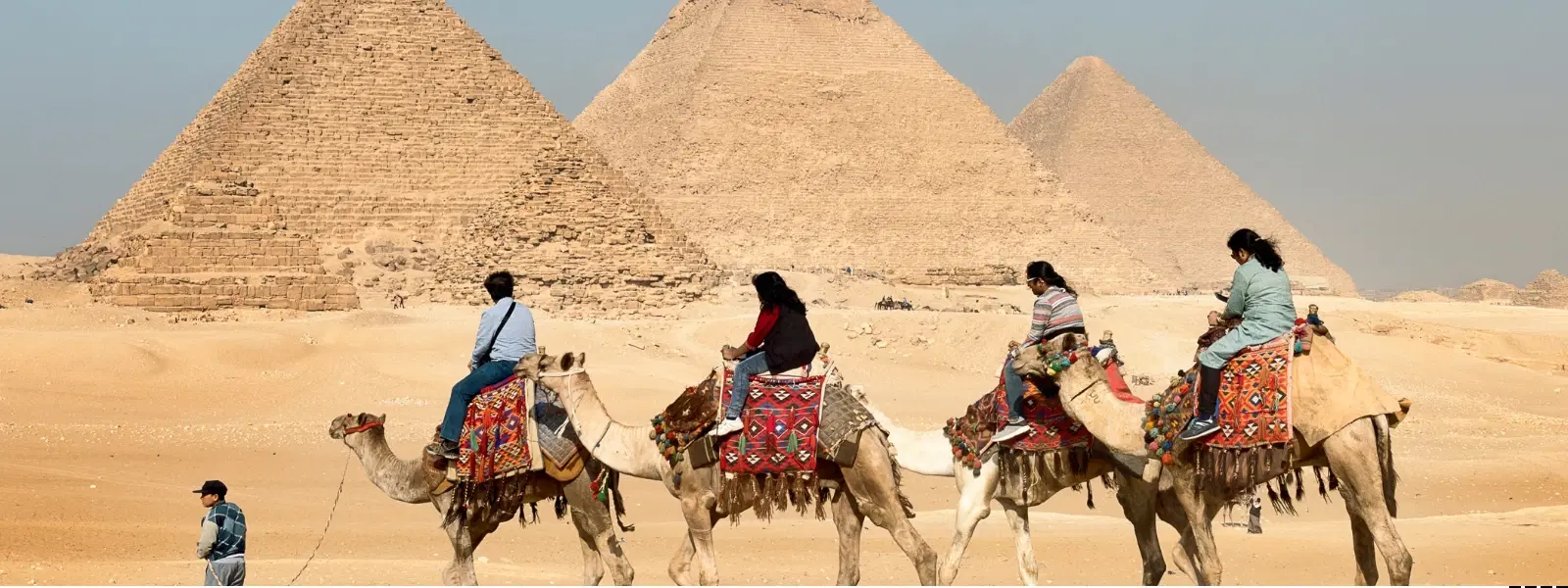
Hotels
•04 min read

Egyptian culture is one of the richest and most ancient in the world, captivating explorers with its timeless traditions, awe-inspiring history, and fascinating mythology. But how much do we really know about this extraordinary civilization? In this blog, we answer some of the most frequently asked questions about Egyptian culture. By the end, you'll gain a deeper understanding of Egyptian heritage, uncovering insights into its customs, history, and modern-day significance.
Egyptian culture is a unique fusion of ancient traditions and modern practices. Shaped by millennia of history, it is deeply influenced by the life-giving Nile River, which has dictated societal norms and customs for generations. Family, community, and religious values are at the heart of daily life in Egypt, where even modern practices maintain an echo of ancient reverence.
The essence of Egyptian culture lies in its impressive art, monumental architecture, and captivating mythology. Ancient symbols like hieroglyphics and the practice of mummification have not only defined the visual landscape of the past but continue to shape modern perceptions of Egypt. These elements together construct a vibrant narrative of resilience and creativity that resonates even today.
No discussion about Egyptian history would be complete without mentioning the powerful pharaohs who ruled for centuries. These rulers were both political leaders and spiritual symbols. Icons such as Tutankhamun, Cleopatra, and Ramses II remain emblematic of a grand era where power and divine right intertwined to mold a civilization unlike any other.
Religion in ancient Egypt was a complex tapestry of beliefs centered around a pantheon of gods and goddesses, including Ra, Osiris, and Isis. The mythology of Egypt, with tales like the story of Osiris and the afterlife, reflects an enduring curiosity to understand life and death. These myths not only educated but also provided a framework for moral and social behavior in ancient society.
Egyptian art and architecture have left a permanent imprint on global culture. The monumental pyramids, majestic temples, and enigmatic statues like the Sphinx continue to inspire architects and artists worldwide. These wonders are a testament to the technical brilliance and symbolic significance imbued in every structure and artwork of ancient Egypt.

In modern-day Egypt, the legacy of ancient culture lives on in everyday customs. Egyptians are renowned for their hospitality and warmth, which is evident in their distinctive clothing styles and sumptuous cuisine. Festivals and public celebrations remain critical to community life, blending traditional rituals with contemporary festivities to create a cultural mosaic that is both dynamic and deeply rooted in heritage.
Marriage and dating in Egypt often reflect a careful balance between tradition and modernity. While family involvement is still important and traditional ceremonies uphold age-old practices, many Egyptians today embrace a more flexible approach. Whether it’s the quiet understanding of mutual respect or the structured formalities of a grand celebration, the evolution from ancient customs to current practices is both fascinating and reflective of societal growth.
Travelling through Egypt is a feast for the senses, largely due to its rich culinary traditions. Dishes such as koshari and ful medames are not merely meals but cultural symbols that tell the story of Egypt's layered history and diverse influences. Food in Egypt reflects the ingenious use of available resources combined with centuries of culinary expertise, offering flavors that are both exotic and deeply comforting.
Egypt is replete with intriguing customs and superstitions passed down through generations. For instance, a common practice is to step in with your right leg, believed to usher in good fortune. Similarly, unusual rituals such as burying a weasel have symbolic meanings that tie back to ancient beliefs and the desire to communicate with unseen spiritual forces.
Long before many modern innovations existed, Egyptians were pioneers in fields such as medicine, astronomy, and engineering. Figures like Imhotep are celebrated for their visionary approaches to architecture and medicine, while the development of one of the earliest calendars marks Egypt as a cradle of scientific inquiry.
Egyptian culture is vibrantly expressed through its many festivals and public holidays. Celebrations such as Sham El-Nessim and the spiritually significant month of Ramadan illustrate the blend of ancient traditions with modern expressions of joy and community. These events bring together families and communities in a spirit of unity and celebration.

Did you know that ancient Egyptian art was not just decorative but deeply symbolic? Every color, pose, and object carried meaning, reflecting the spiritual beliefs and societal values of the time.
Egyptian culture is a blend of ancient traditions and modern practices, deeply rooted in history, religion, art, and community values.
Dating in Egypt is often influenced by cultural norms and family involvement. Traditional values prioritize respect, modesty, and long-term commitment.
Common traditions include hospitality, religious festivals, family gatherings, and unique practices like stepping in with the right leg for good luck.
Egyptian culture is renowned for its contributions to art, architecture, science, and mythology. Iconic symbols like the pyramids, hieroglyphics, and practices such as mummification continue to fascinate the world.
Religion is central to Egyptian culture, from the ancient polytheistic system that honored gods like Ra and Isis to the modern predominance of Islam and Christianity, shaping societal values over millennia.
Egyptian culture is a fascinating tapestry of traditions, history, and modern influences. From the majestic legacy of the pharaohs to the vivid landscape of contemporary customs and culinary delights, Egypt continues to enchant with its rich heritage. By delving into the nuanced world of Egyptian culture, we not only appreciate its timeless contributions to art, architecture, and religion but also its continuing impact on daily life. Discover the secrets of this extraordinary civilization and the bridges it builds between the ancient and the modern.